Amicae, the feminist activist group on campus, faces decreasing membership. Melanie Patterson, '77, cites a number of programs the group sponsored about rape crisis and the International Year of the Woman, but says "we as a group became discouraged because of the lack of campus response to those projects." A significant number of Amicae women graduate this year and Martin House, which has been a special interest house for women, becomes known as the "constructive living" house in the fall. New residents are primarily interested in vegetarianism, meditation, and yoga.
The Bucknellian 3/5 and 9/17/76
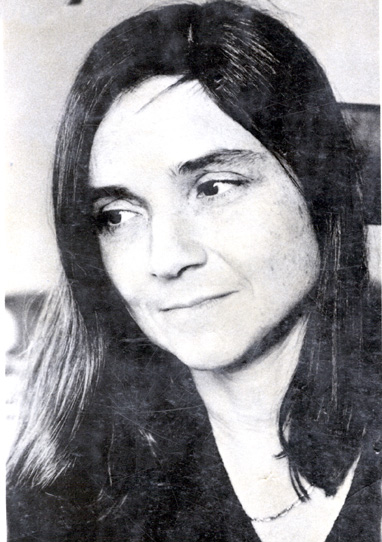
Feminist author Adrienne Rich speaks to a crowded Bucknell Forum on October 14. An historical approach to sexist injustice is the theme of her talk. She reads some of her recent poetry as well as portions of her new prose book, Of Woman Born: Motherhood as Experience and Institution.
The Bucknellian, 10/22/76
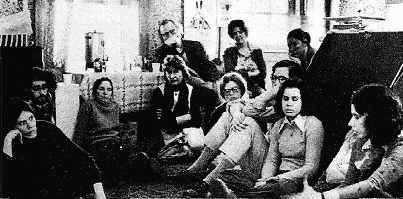
International Women's Day is celebrated March 6 with a discussion and covered dish dinner at Hulley House. Co-sponsored by Amicae and Critical Studies House, the event includes several Bucknell professors, students, and women's group organizers. Nancy Neuman, President of the League of Women Voters in Pennsylvania emphasized the ERA and equality under the law. Assistant professor of psychology Genie Gerdes discussed gender role socialization. English professor Karl Patten, history instructor Mary Porter, and assistant professor of political science Pat Longley talked about women's participation in the classroom and their lack of visibility on campus. Patrice Ingrassia, '76, one of the day's coordinators viewed the day as a success. "So many people came . . . and we not only dealt with issues outside the campus, but we also dealt with Bucknell, " she said. She is also quoted as saying, "It was a disappointment that there were so few underclass women though."
The Bucknellian, 3/12/76
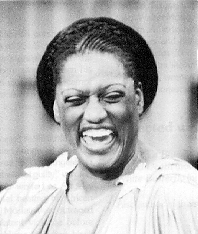
Soprano Jessye Norman, a singer of world stature, presents a recital in Rooke Chapel, November 2. "One of the leading sopranos of Europe," her concert in Toronto was described "as nearly a flawless performance as one could rightly expect from the human voice."
The Bucknellian, 10/29/76
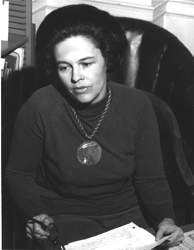
Dr. Marilyn Mumford receives the Lindback Award for Distinguished Teaching and receives tenure in the English Department. Having received her doctorate from Penn State and been promoted to assistant professor in 1974, she is also advanced at this time to associate professor. "Students and colleagues alike are virtually unanimous in their praise of Professor Mumford as a teacher. She is highly regarded for the depth and breadth of her learning and the interest she is able to generate in a variety of subject matters." Dr. Mumford's "wit, energy and imagination vitally combine to project ideas vividly," according to the citation she receives at commencement. She offers a variety of courses, from children's literature, to medieval texts, to classes on journalism. She offers some of the first courses in women's literature as well.
Public Relations News Release May 1977, Public Relations
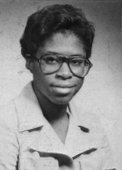
Recollection
Jackie Cooke, M.D., Class of 1977, became head of Bucknell's Black
Alumni Association in 1992. Back in 1989, Gary Sojka and
a few other people got together and said, "Look, I'd really like to make
this happen." And from those initial meetings, other meeting were held,
throughout the east coast to alert people to the fact that there was going
to be an African-American Alumni Association. So, I started in that manner,
I went to the call meeting that they had and I said, "OK, this sounds
like a good idea, what can I do?"
Under Jackie's leadership, the Black Alumni Association's initiated the
Brawley Fund, a fund that sponsors research projects by African-American
students. It is named after Edward McNight Brawley, the first African-American
student at Bucknell who graduated in 1875. "I heard a story about a student
who was looking for funding for a project in the Biology department. I
also understood that that student wanted to go to medical school. And
I thought, you know, 20 years ago, somebody gave me a chance. And what
they say is that for the lack of a few bucks, this student is going to
lose his chance. He's got somebody to back him, he just doesn't have the
money. And of course, I couldn't let that happen. So, I started getting
involved into the mentoring thing. Not just individually, but it also
kicked off a way to get the Brawley Fund of the Black Alumni Association
together with underwritings for projects for students to do, ones that
had an educational purpose or that had a sense of bringing a cultural
flavor to the Bucknell community. It started because somebody was in need.
It was because of that fact that that student had a need that I proposed
the Brawley Fund."
WRCInterview10/95
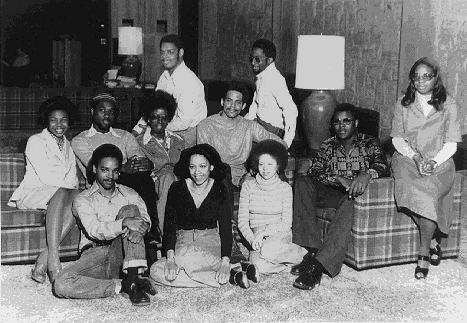
Committee for 6th Annual Black Arts Festival
1st row: Gerald Clements '77, Cynthia Mason '78, Debbie Lewis '79, Anthony
Richardson '79, Stacey Ross '79
seated on sofa: Mary Kent '80, Tom McLean '77, Deborah Burnett '77, John
Callaway '78
on sofa back: Dennis Jackson '80, Roger Gary '78
Bucknell University Archives
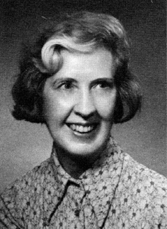
After thirty-two years of teaching piano and music theory in the Bucknell Music Department, Dorothy Wilson retires from her position of Associate Professor. Perhaps the greatest achievements of her career at Bucknell included the establishment of the Psi chapter of Mu Phi Epsilon, a national music sorority, along with the reception of numerous awards from the Pennsylvania Federation of Music Clubs. Dorothy also served as visiting director of the Canadian Academy in Kobe, Japan in 1966. Dorothy continued to play an active role in the Bucknell and Lewisburg community after retirement, often playing recitals and serving as an accompanist for student perfomances.
Public Relations
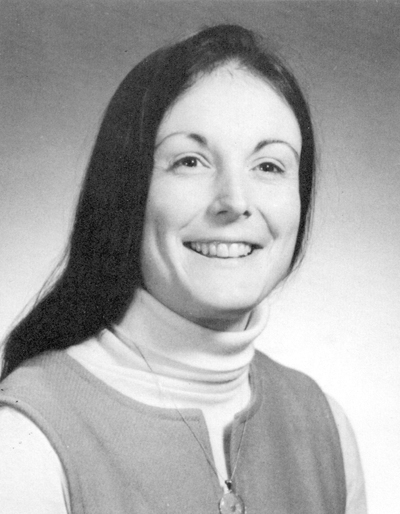
Ruth Burnham
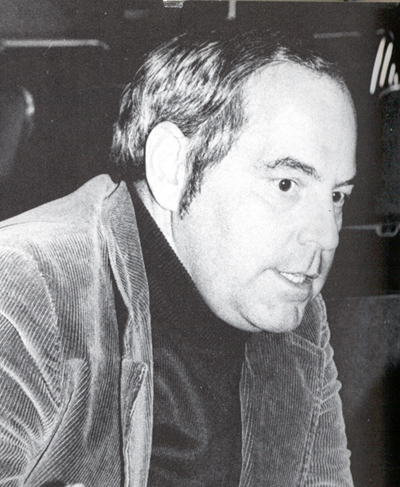
Jim Hammerlee
Ruth Burnham, a graduate student and member of the staff at Colorado
State University for two years, is appointed assistant to the director
of student activities and University Center programs at Bucknell. Before
Bucknell, Burnham was in a graduate program in student personnel administration
at Colorado, and received her undergraduate degree in sociology from Tufts
University.
Burnham meets Jim Hammerlee at a conference in New Orleans in 1978,
and interviews there for the job at Bucknell. Hammerlee only has money
for a position in a clerical placement. Burnham wants to see the campus
before accepting the position, but Hammerlee has no money in his budget
for a clerical person to come to the campus to interview. Burnham borrows
$100 from her parents so that she can stop in Lewisburg on her way back
from an interview at Brandeis in Massachusetts, where her parents live.
She interviews and has a wonderful time, saying she "just fell in love
with the place as many people do." She calls home to tell her parents
"this is it." Burnham gets back apartment in Colorado at 2:00
am and Hammerlee calls her at 10:00 to offer the position. She calls him
back and accepts, and comes Bucknell July of 1978. When Burnham
is hired, although she must fill out a time sheet, she is given some benefits
that were unusual for clerical employees. She receives four weeks vacation
and the tuition benefit immediately. Burnaham is soon promoted to the
position of assistant director of student activities and university center
programs. Her main responsibility is advising a group called Concern Action,
an extensive volunteer service program, and precursor of what is now the
activities council.
WRC Interview, 2/96
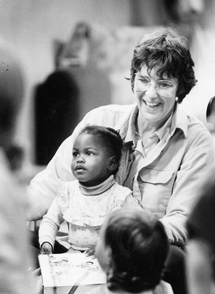
In September, Sunflower, the Lewisburg Area Child Care Center, opens in the former Tustin Gymnasium. The University Physical Plant has renovated the former archery room for a play area. The space also contains a nursery and child psychology observation room, where Bucknell students or parents can, without being seen, watch the children's interactions. Sunflower is directed by Brown graduate and former junior high teacher Judy Peeler, wife of Political Science Professor John Peeler. Sunflower pays rent to the university for the space. Student volunteers are welcome.
The Bucknellian, 9/15/78
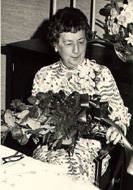
Having served Bucknell for 47 years, Trennie Eisley retires from her position as Public Relations Director emerita. She has taught English and economics courses for many years, and served under eight of Bucknell's first 12 presidents. A director of the Middle Atlantic District of the American College Public Relations Association, Trennie was also a charter member and first president of the Lewisburg Junior Civic League and a charter member of the local chapter of the American Association of University Women. The trustees honor her with a citation on May 13, saying in part, "This citation cannot follow any conventional pattern because its subject never did. Long before women's lib, eons before ERA, Trennie Eisley was breaking masculine taboos and traditions -- breaking them blithely and brilliantly -- for Bucknell . . . In honoring Trennie E. Eisley, Bucknell is honoring her own -- and herself."
Public Relations

The Society for Women Engineers is established by three sophomores, Kathy Olson, an electrical engineer, and Elizabeth Diggs and Cynthia Karbowski, both mechanical engineers. "The Society provides a chance to meet students in the classes above and below them, especially above them," notes Betty Diggs. At this time there are 126 women engineering majors, while five years earlier, there were just 12. These students "needed role models, information, inspiration, and an outlet, all of which SWE provided and continues to provide today."
Weist
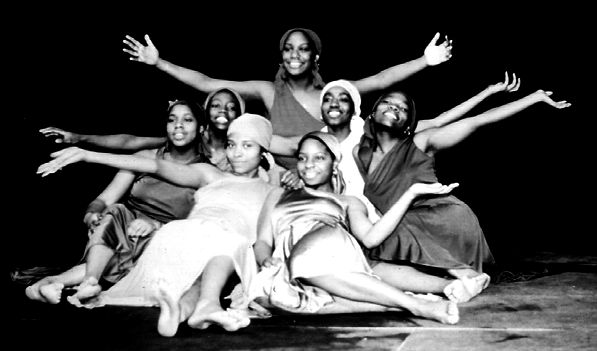
The play for colored girls who have considered suicide/when the rainbow is enuf is performed on campus through Bucknell University Theater. This choreo-poem by Ntozake Shange is a celebration of being black and being woman. Cast members included Nancy Barnwell, Judy Hill, Alison Baytop, Michelle Brown, Stacy Ross, Debra Ivory, and Stephanie Coleman.
Alison who played the lady in red recalls: "The experience was awesome. We got into the play because we were in a readers theater production for Kwanza; then we decided that we wanted to bring the play to campus and make a full production of it. We had to fight to perform the play then. The director of the play was Professor Simmons who had done a lot of theater and was very dramatic (you couldn't tell his accent because it was a New Yorker, West Indies, British accent). The campus came and saw the play and we had a fullhouse for the play every night. We toured the play with Professor Simmons' play group and that was how we made our money sophomore and junior year in the Pennsylvania and New Jersey area."
WRC Interview, 3/9/96
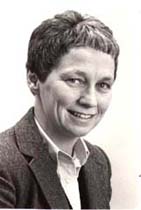
Dr. Trudy Bender Cunningham is offered a position as a full-time visiting Assistant Professor of Mathematics. After initially declining the offer to teach math part-time at Bucknell since she considered it was not worth the effort required to leave her small children and make the necessary child care arrangements, she accepts the full-time post. With degrees from the University of Chattanooga, the University of Oregon, and the University of Tennessee, she is a specialist in mathematics education.
Public Relations News Release 7/25/79, WRC Interview 1/26/95
Zeta Phi Beta, a national black sorority, was chartered on Bucknell's campus. Members included Alison Baytop, Cheryl Garth, Kennie Johnson, Judy Hill, Stephanie Coleman, and Michele Brown, all from the class of 1981.
Michele recalls: "We blazed the sorority and really had a hard time with the University. They really didn't understand why we needed to have our own charter for a Black sorority when we already have nine 'perfectly good sororities' already that we could join. Bucknell sometimes struggles with the issues of preference and your preference with affiliating with others. We educated residential life with the fact that there are needs in this area and Zeta Phi Beta was chartered. The university was concerned with the fact that all of the women in the sorority were in the same class and what happens when you all graduate? However, it filled the need at the time and that's what we had to address - we didn't have the luxury as a small community to embrace the long term historical significance of what we are doing; we have to address the need as we face it at that particular time. The sorority brought women together who didn't necessarily see eye to eye, but we had a singular purpose to provide community service for Black women and we did that, this is the same thing that happened for the Black fraternity, Phi Beta Sigma which was chartered the year before in 1978. You can't diminish the fact that these systems did a lot for the students who started them as well as the University. It was a good experience for the University because it had to come to terms with the way historically Black pledge classes conduct their rush systems. It wasn't easy to convince the University of the importance of having this system, however they are better for having had this experience in the long run."
WRC Interview, 3/9/96
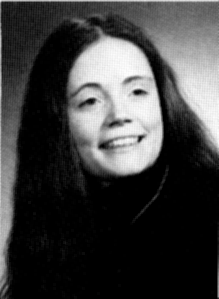
Recollection
Ellen Q. Bush, a Phi Beta Kappa graduate cum laude in the Class of 1979, majored in both history and political science. She recalls that Bucknell was a place where women and men worked on equal footing. "I felt very strongly that I was equal with any male on campus and I do credit our educational staff for that," she remarked. As a successful investment banker, she recognizes that some fields can be male-dominated, but for her, the university classroom was gender-blind. "Professors didn't look out and see a response as him versus her ...I never felt when I walked into a classroom that there was competition between male and female students." In Ellen's view, this experience offered her a sense of empowerment; "There is a strength that comes with academic succeeding...gender should not matter."
Describing her time at the University in the late 70s, Ellen remarked, "We had just come off the end of the Viet Nam War and there was a greater awareness of what power students have." She appreciated the role Bucknell played in bringing nationally known speakers to campus. "Bella Abzug, Ralph Nader, and Cecily Tyson came... Gerald Ford was here as well."
WRC Interview, 1995
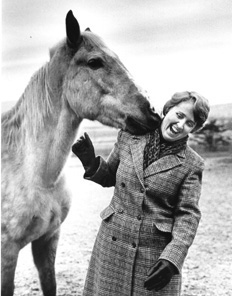
Maureen Murphy is promoted from Assistant to Associate Dean of the College of Arts and Sciences. She has served for six years as the Affirmative Action Coordinator and Chairperson of the Equal Opportunity Committee, and for two years she has been coordinating the Women's Studies Interdisciplinary Concentration. In her role as an advisor, she tells students not to rush into things. "I tell them 'keep your options open,'" she says. Although she juggles responsibilities as a professional educator, university administrator, wife, daughter, mother of three, gardener, and horseback rider, she does not consider herself "a superwoman" as others might. "It's important to know who you are and what you're about." Dean Murphy notes, "It's important not to take a back seat." She remarks that students have changed during her time here. I have women students tell me 'I'm not a feminist' and I wonder what's wrong with being a feminist." She feels that her own feminism has served her well.
Public Relations, Bucknell World November/December 1982